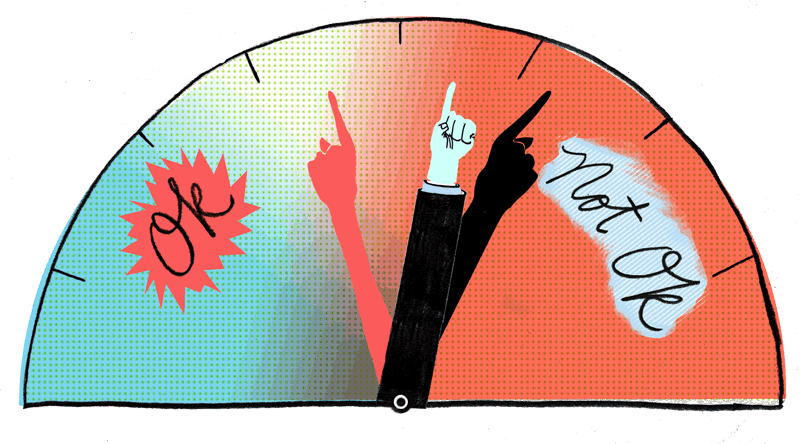
In the last 2 1/2 months, 73 men in powerful positions have been accused of sexual harassment. The majority, an astounding 47, have lost their positions—particularly those in power—while the rest keep their roles but live in a state of public disgrace. This is indicative of a generation fed up with the deprecation of women.
What is the line between appropriate and not? What is considered harmless, and what is considered harassment? It is a major problem, and we all have different ideas of what we find insulting and inappropriate. The line between sexual harassment and flirting is dependent on each individual.
The United States Equal Opportunity Commission defines harassment as “unwelcome sexual advances, requests for sexual favors, and other verbal or physical harassment of a sexual nature.”
The most specific this definition gets is that teasing or off-hand comments are not necessarily harassment, but making disparaging remarks to a person about another’s gender is. The law is clear: The workplace is not a place for anything regarding sex. Touch, behavior and talk that is sexual or could be perceived as sexual has no place in any professional environment, and that seems fair enough.
But how do we navigate the line of sexual harassment in a social context, and how does the social idea of sexual harassment factor into the legal aspect?
While the legal standpoint is clear, the social context is conditional. Every human deserves to work and live in an environment where they feel safe, valued and empowered to speak up against harassment. Sexual harassment is a social weapon inflicted by and on people of all genders and sexual orientations. It should be treated as a serious, cut-and-dried offense.
Seeing as the incidences of false accusations are so low at two to seven percent, it is important to look into all reports without bias. This helps both the victim and accused by getting all parties involved the support and/or consequences appropriate to the crimes committed. Because of the difficulty victims face in reporting sexual crimes, it is necessary to treat all reports seriously.
Understandings of acceptable behaviors are clearly changing, and hopefully for the better. Sexual harassment is a horrible act that happens to people of all genders all too often, and false accusations and assumptions create problems for the accused.
In these cases, it is not a law that can be changed; the laws are there, and they are clear. Instead it is a social change that needs to be made. Sexual harassment should never be accepted as normal, and gender should not factor into the workplace, whether the workplace is in Hollywood, Washington D.C. or a local company.



